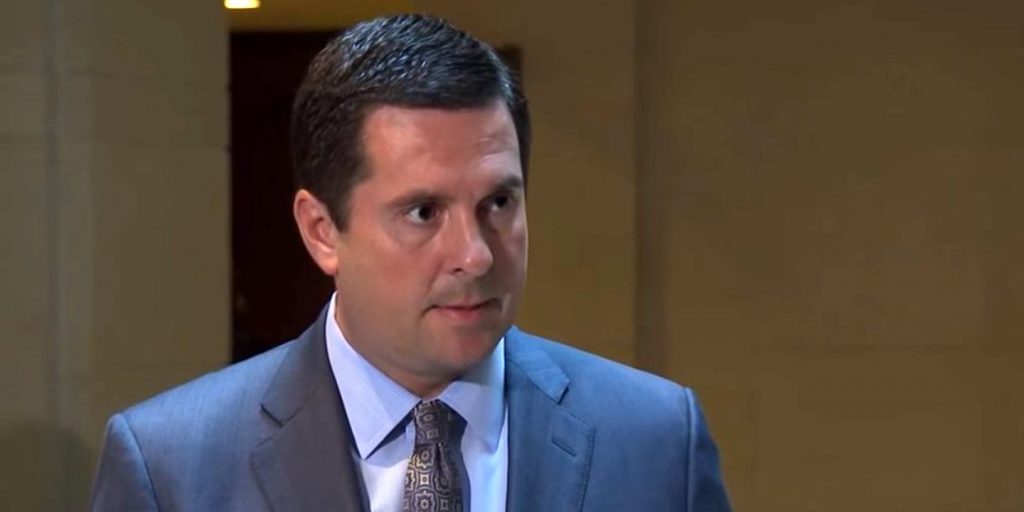Flynn Immunity Offer Rejected, Nunes Recused in Widening Russia Election Probes
BY Ryan Conley

LISTEN
The spiraling investigation into Russian interference in the 2016 U.S. presidential election continues to claim victims and has sent at least one former top official scrambling for legal cover.
On March 30, Michael T. Flynn offered to testify to the House and Senate Intelligence Committees in exchange for prosecutorial immunity. After just three weeks as National Security Advisor, Flynn resigned amid reports he had misled Vice President Mike Pence as to his communications with Sergey Kislyak, Russian ambassador to the United States.
The day after the request, Trump tweeted that “Flynn should ask for immunity” because the investigation was a “witch hunt.”
Flynn’s attorney, Robert Kelner, released a statement on the evening of March 30 saying, “no reasonable person, who has the benefit of advice from counsel, would submit to questioning in such a highly politicized, witch-hunt environment without assurances against unfair prosecution.”
Observers were quick to point out the irony of these statements. Last September, following reports that Hillary Clinton had received immunity in exchange for cooperation with investigations into her email server, Flynn himself told NBC’s Chuck Todd that “when you are given immunity, that means you’ve probably committed a crime.” Soon after, Trump echoed those sentiments at a campaign rally in Wisconsin.
Rep. Adam Schiff (D-Calif.), the House Intelligence Committee’s ranking member, said that for a National Security Advisor to the President to ask for immunity constituted “a grave and momentous step.”
The day after Flynn’s offer, the Senate Intelligence Committee denied Flynn immunity, although it is too early to say whether such an agreement might be reached in the future. NBC News quoted a senior congressional official who said Kelner was told immunity was “wildly preliminary” and “not on the table” at that time.
While Flynn has of late received the lion’s share of media attention, a number of other congressional investigations are ongoing.
Sen. Lindsey Graham, R-S.C., chairs two subcommittees that have held hearings on, as he puts it, Russia’s attempts to “grind democracy into the ground.”
Senate Democrats on the Homeland Security Committee are asking questions about the White House’s vetting of hires for key security positions including Flynn. Sen. John Tester, D-Mont., criticized the Trump White House for appointing Flynn despite his business relationship with RT, the Russian government news agency.
“We are demanding detailed answers about the vetting of General Flynn and other White House advisers because it is critical to keeping Montana and our nation secure,” Tester said. “Flynn’s appointment exposed gaps in our security and raises questions about his contacts with Russian officials.”
In a bipartisan effort, the House Oversight Committee is trying to determine how much Flynn was paid to represent Russia. The investigation, led by Rep. Jason Chaffetz, R-Utah, and Rep. Elijah Cumming, D-Md., has already uncovered payments from three Russian companies to Flynn totaling more than $50,000.
A subcommittee of the Senate Armed Services Committee is looking into Russian disinformation campaigns in Ukraine. Subcommittee members want to know how this may relate to allegations that Russia was involved in distributing “fake news” stories aimed at bolstering Trump’s race against Clinton.
Republicans are cognizant of the need to avoid favoring Trump in any investigations. Rep. Chaffetz said investigators must not “be a cheerleader for the president” and that history would judge them in that regard.
So far, however, Republican leaders in both houses of Congress have been reluctant to authorize what would constitute a more serious and far-reaching step: the formation of an independent commission outside Congress to investigate and determine the extent of Russia’s meddling in the 2016 election. This would avoid any potentially embarrassing allegations of a partisan investigation deliberately avoiding harming the president.
A recent development illustrates exactly these concerns and shows that the Russia investigations are themselves spawning even more investigations and further controversy. Rep. Devin Nunes, part of the House Intelligence Committee probe, is now the subject of a House Ethics Committee investigation into allegations he revealed classified information and was acting on behalf of the White House. After Nunes learned that members of Trump’s transition team were swept up in surveillance of foreign nationals, Nunes briefed Trump on the matter without informing his Democratic committee colleagues and later held a press conference on the matter.
LATEST STORIES



